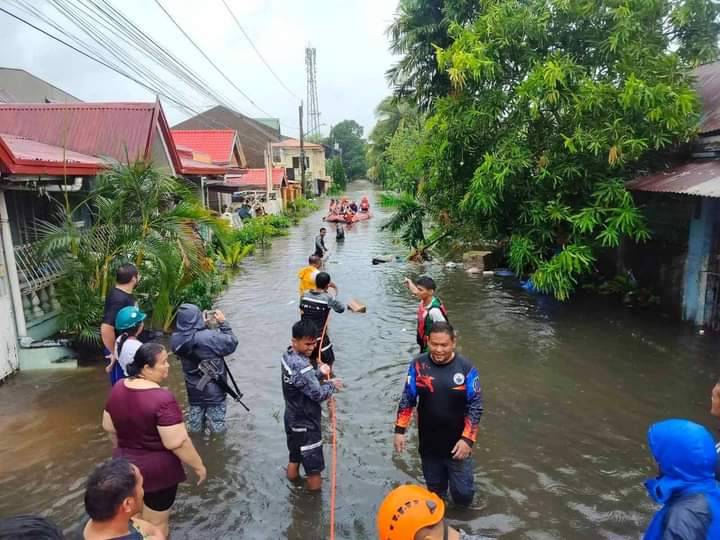PH still world’s most at-risk to disasters

For the third straight year, the Philippines has remained the most at-risk country to extreme natural events and negative climate change, according to the 2024 edition of the World Risk Report that came out earlier this week.
The report’s World Risk Index, which included all 193 member states of the United Nations for the first time, assesses disaster risks by evaluating each country’s “exposure to natural hazards, the susceptibility of the population, and the coping and adaptive capacities of societies.”
The index showed the Philippines at No. 1 with the highest risk (46.91 points), followed by Indonesia in second place (41.13), India in third (40.96), Colombia in fourth (37.81) and Mexico in fifth (35.93).
The remaining countries with the highest risk were Myanmar, Mozambique, Russian Federation, Bangladesh and Pakistan.
Methodology
The index has been published annually by Bündnis Entwicklung Hilft and the Ruhr University Bochum–Institute for International Law of Peace and Armed Conflict since 2011.
The result is calculated by getting the geometric mean of the country’s exposure and vulnerability according to 100 indicators.
Exposure refers to the extent to which populations are exposed to and affected by earthquakes, tsunamis, floodings, cyclones, droughts and sea level rise.
Vulnerability, on the other hand, refers to a country’s likelihood to suffer from damages during natural disasters and its ability to respond quickly and in the long term.
The index “serves as a guidance for decision makers and identifies fields of action for disaster risk reduction,” the report said, as published on Bündnis Entwicklung Hilft’s website.
Officials’ reactions
Environment Secretary Ma. Antonia Yulo Loyzaga said the Philippines, though affected by many natural hazards, was also “one of the fastest growing economies in the world [under the Marcos administration], with a steady population growth and declining poverty rate. This explains our high exposure and vulnerability.”
“We are now studying the report carefully but [we] have already been working strategically across departments and local governments, with development partners and the private sector, to build our capacity to protect these gains along with lives and livelihoods,” she added.
At the same time, the Office of Civil Defense (OCD) said on Thursday that the Philippines needs a multisectoral approach in disaster risk reduction and management.
In a statement, the OCD said the country’s ranking in the report was “a clear reminder” to keep working together to tackle and address the challenges and issues at hand.
It pushed for collaborative interventions from different sectors “to promote more comprehensive and concrete efforts to reduce risks.”
















